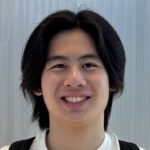Born and raised in Hong Kong, I grew up in a vibrant metropolis renowned for its internationality; I attended high school with classmates from 14 countries, a perfect example of the melting pot that Hong Kong is. As a dual citizen, I visited the United States frequently during my childhood, spending many summer and winter breaks on the West Coast, and attending boarding school for a year in New Jersey. I have been consistently exposed to American places, culture, and values from a young age. But studying in the US this past year during Donald Trump’s presidency showed me a side of America I had never witnessed.
From the moment I arrived on campus for my freshman year of college, I was struck by how deeply the Trump campaign’s rhetoric (and, later, the Trump administration’s policies) permeated everyday conversations. Back home in Hong Kong, politics often felt peripheral—a backdrop to daily life rather than its centerpiece. Here, it was inescapable. Whether it was debates over immigration, heated discussions about trade policy, or protests on campus, Trump’s America was a nation grappling with questions of identity and exclusion 24/7.
Growing up in Hong Kong, I was taught to see the United States as a beacon of democracy, a place where freedom of speech and individual rights were sacrosanct. This was the America I believed in, the America I proudly claimed as part of my identity. Yet, the reality I encountered during my freshman year was far more complicated. Trump’s rhetoric on issues like immigration and race often left me feeling like an outsider, even though I hold an American passport. His administration’s trade war with China cast a long shadow over my identity as someone ethnically Chinese, sparking uncomfortable questions about loyalty and belonging. Was I seen—by my classmates, and by the nation more broadly—as an American, a Hong Konger, or simply “other”?
Politics were far from peripheral on campus. And these policies and stances go further than simple politics. Trump’s anti-China stance fomented a nationwide atmosphere of mistrust against my specific demographic, creating a hostile environment that I felt keenly at school, where a considerable portion of the student body are staunch but silent Trump supporters. The Trump administration’s executive orders targeting Chinese academics—ostensibly to curb intellectual property theft—stoked suspicion and xenophobia. Not only was I targeted for my nationality as an alleged geopolitical rival by the presiding leader of the nation I am studying in; I also had to participate in campus discussions about possible threats posed by Chinese students and researchers, including a town hall meeting in which students were invited to air their thoughts and concerns, resulting in heated argument and contention over the mere presence of my demographic in the US.
With deep ties to both Hong Kong and the United States, I found myself caught in a web of contradictory stereotypes: both the “model minority” ideal of the dedicated student, and, in the eyes of some, a potential threat aligned with a geopolitical rival. Even when nobody was bold enough to directly say things to my face, this suspicion was implied through students’ stated and implied political beliefs in public conversation as well as on social media. I was surprised by the number of domestic students who agreed with Trump’s views, contributing to an atmosphere of discomfort and mistrust even when these views were technically unspoken. Speaking with my close friends from Hong Kong who attend different universities in the US, as well as other Chinese and Asian students at my college, the vast majority share similar feelings and have gone through similar experiences.
As a dual citizen, I often feel like I’m straddling two worlds, neither of which fully understands the other. In conversations about US–China relations, I’ve found myself playing the role of cultural interpreter, explaining Hong Kong’s unique history and its precarious position between two global superpowers. I’ve also had to confront my own biases, questioning long-held assumptions about what it means to be free, to belong, and to contribute meaningfully to a community.
In this charged atmosphere, studying in the United States has given me a newfound appreciation for the importance of civic engagement. I’ve been inspired by the passion of my peers, who refuse to remain silent in the face of injustice. Whether organizing protests, writing op-eds, or engaging in spirited classroom debates, their commitment to holding power accountable has been a powerful antidote to the cynicism I sometimes feel about the future of democracy. They remind me that democracy is not a static achievement but a constant struggle, one that requires vigilance, courage, and a willingness to build bridges across the borders we’re told should separate us.
